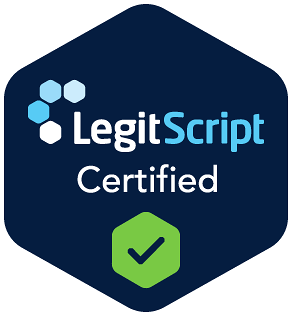When someone is struggling with addiction, many factors are carefully considered by individuals and loved ones before seeking treatment to determine the best fit. One of the top questions people have is, “can I work while I’m in rehab?” If an income supports a family, or perhaps they’re the only working parent, this decision can feel especially fraught.
But too often, addicts may use the phrase “I can’t get help right now because I need to work” as an excuse to prolong drug or alcohol use and avoid seeking rehabilitation for a drug and/or alcohol use disorder. The good news? You can enter an intensive outpatient program (IOP) and continue working while getting help for mental health or substance use disorders.
Remember that you’re not alone – more than 10 million people currently employed struggle with substance use disorders, according to the Substance Abuse and Mental Health Services Association. But it’s not too late to seek help while also keeping your career trajectory on track. There will never be a “perfect” time in your job, family or home life to enter treatment, but the positive recovery changes you make today will be worth it in the future.
Can I Work While I’m In Rehab? Understanding Intensive Outpatient Rehabilitation (IOP)
Yes, you can work while you’re in rehab – depending on the level of care you enter. Intensive Outpatient Programming (IOP) is a form of treatment that takes place in a professional facility during the daytime or evening. The number of days and hours per day someone attends IOP depends on the individual’s needs as determined by the treatment provider. Most patients in an intensive outpatient program typically visit the facility for treatment three to four days a week, and each IOP visit typically lasts for about three hours each visit.
IOP works well for clients who do not need to be in an inpatient or residential program but still need a concentrated amount of time per week to work on their recovery. They can attend their treatment sessions during the day, or even attend a virtual or evening IOP program, and still return home at night.
At North Atlanta Behavioral Health – and across all of our facilities at Creekside Recovery Group – our intensive outpatient programs typically offer a higher level of care than what other outpatient-type addiction treatment programs offer. Your individual recovery plan will vary depending on what best suits your needs, and may include group therapy, medication-assisted treatment, individual therapy, psychiatry, holistic rehab, family therapy, and more.
Inpatient vs Outpatient Treatment
Each situation is case-by-case, and sometimes, inpatient might not be a high enough level of care for an individual. For example, substance use disorders may also have diagnosed or undiagnosed co-occurring mental health disorders or other medical conditions, which can sometimes require 24/7 care or observation in early recovery. For these individuals, a co-occurring disorder program, like an inpatient program specializing in depression treatment, may be a safer and preferred option. Additionally, if you are physically addicted to drugs or alcohol, you will need to enter medical detox first.
Unlike inpatient care – which includes a residential component and fully removes the distractions of daily life, sometimes even taking away phones – outpatient requires the ability to balance commitments. Not everyone can, and that’s OK. Individuals in outpatient care must hold themselves accountable to showing up on time to the facility, attending full treatment sessions, and committing to applying key learnings to make positive changes to all areas of life. You can learn more here about the differences between inpatient and outpatient treatment care.
Overcome Addiction with evidence-based, expert care.
What Does “Step-Down” Mean?
“Step down” is common lingo in treatment centers. Recovery is a journey and unique to each individual, so depending on a patient’s progress, needs may change overtime and require flexibility and adjustment as treatment progresses. In some cases, a patient will “step up” or “step down” to a higher or lower level of treatment that’s the best fit. For example, stepping up to a partial hospitalization program (PHP) from IOP, or stepping down to even less frequent outpatient rehab.
Overall, the duration of IOP is generally flexible and depends on each individual’s personalized treatment plan and needs. Most people find that the longer they remain in treatment, the less hold that alcohol or drug addiction has over you – meaning that triggers, cravings and thoughts of using subside over time. A case manager will continuously evaluate progress throughout your IOP participation, and as you slowly lower intensity of treatment, you’ll feel better prepared to eventually move on and reintegrate fully back into daily life.
Benefits of Outpatient Rehab
Arguably the biggest benefit of outpatient rehab treatment is the flexibility. Individuals can keep their jobs, continue to raise their families, socialize with friends, and sleep in the comfort of their own home. Unfortunately, mental health and addiction continues to have a stigma, so many also prefer to remain private until they’re ready to share their struggles and journey more broadly. Additional benefits of outpatient programming include:
- Living at home during treatment
- Maintaining employment
- Increased privacy compared to inpatient rehab
- Ability to remain physically connected to friends and family
- Greater flexibility of scheduling, leading to little or no disruption in normal responsibilities at work, home or school
- Reduced cost, which can mean a longer course of treatment which might increase the chance of successful outcomes
- Opportunity for patients to apply learned life skills and relapse prevention skills immediately in home setting or living environment, at work, etc. while still having support from treatment team and peers in recovery
- Helping to transition more easily back into everyday life
While many enjoy the support of close friends and family members locally or at home during outpatient care, it’s important to do that in the safest way possible. Positive relationships can be helpful during treatment, but any unhealthy relationships and accompanying triggers — which can lead to relapse – should be avoided. For many seeking treatment, the dynamics of home and family life might be contributing to the problem. In those cases, seeking inpatient care somewhere away from home and those stressors (even somewhere out of state) might be a better option.
Can I Work While I’m in Rehab?
The short answer is, yes, you can work while you’re in rehab depending on the level of care you decide to enter. From Partial Hospitalization Programming to Intensive Outpatient Programming, we can help you find the right level of care that will meet your needs.
Start Admission
Verify Insurance
Transitioning Out of Outpatient Rehab
IOP can help you overcome your addiction and provide a strong foundation for continued recovery. The life skills and coping skills you learn at North Atlanta Behavioral Health can provide a toolkit for a meaningful future in sobriety. After completing an outpatient program, you may need continued professional support (i.e. psychiatrist, therapist, etc.) and aftercare as you navigate your new life. Each person is unique – this could be months or years. In this case, aftercare is much less intensive than outpatient rehabilitation (could even be on a weekly or monthly basis) and easy to fit into your routine.
Our goal at North Atlanta Behavioral Health is for our patients to graduate from our outpatient programming and remain involved in our robust alumni group and network to maintain recovery and personal growth.
What You Need to Know: Continuing to Work While in Rehab
If you decide that inpatient treatment might be the better fit for you, you will be even more worried about retaining your position at work. While you can’t work during inpatient rehab, rest assured that the Family Medical Leave Act (FMLA) can help you keep your job, as long as you meet the criteria. You must work for a covered employer within the guidelines below:
- FMLA covers private-sector employers if they have a minimum of 50 employees that have worked in at least 20 work weeks in the preceding or current calendar year.
- Public agencies and public or private elementary or secondary schools are covered regardless of the number of employees.
- You are eligible if you work for a participating company and have been employed for at least 12 months – breaking down to a minimum requirement of 1,250 hours of work clocked in the last year.
- You must work at a location where the employer has a minimum of 50 employees within a 75-mile distance.
If you meet these requirements for FMLA, you can take up to 12 weeks of leave in a calendar year. In most cases, an individual will not receive a paycheck during leave but will have job security upon graduating from a treatment program and be able to keep group health insurance. Once you return from FMLA, you will then go back to your same, or a similar, job with identical pay and benefits. If you’re considering pursuing this option, your employer or HR department can help with questions and paperwork.
Can I Work While I’m In Rehab? Begin Addiction Treatment in Atlanta Today
If you or a loved one is seeking addiction treatment options, North Atlanta Behavioral Health offers treatment – with sober living housing options in both Atlanta, Marietta, St. Petersburg and Tampa – can assist in providing resources and options, including detox facility recommendations and/or interventionists with years of experience assisting families and individuals. We know what you’re going through and you’re not alone. We are here to help.
Call us now at 770-230-5699 or verify your insurance today.













